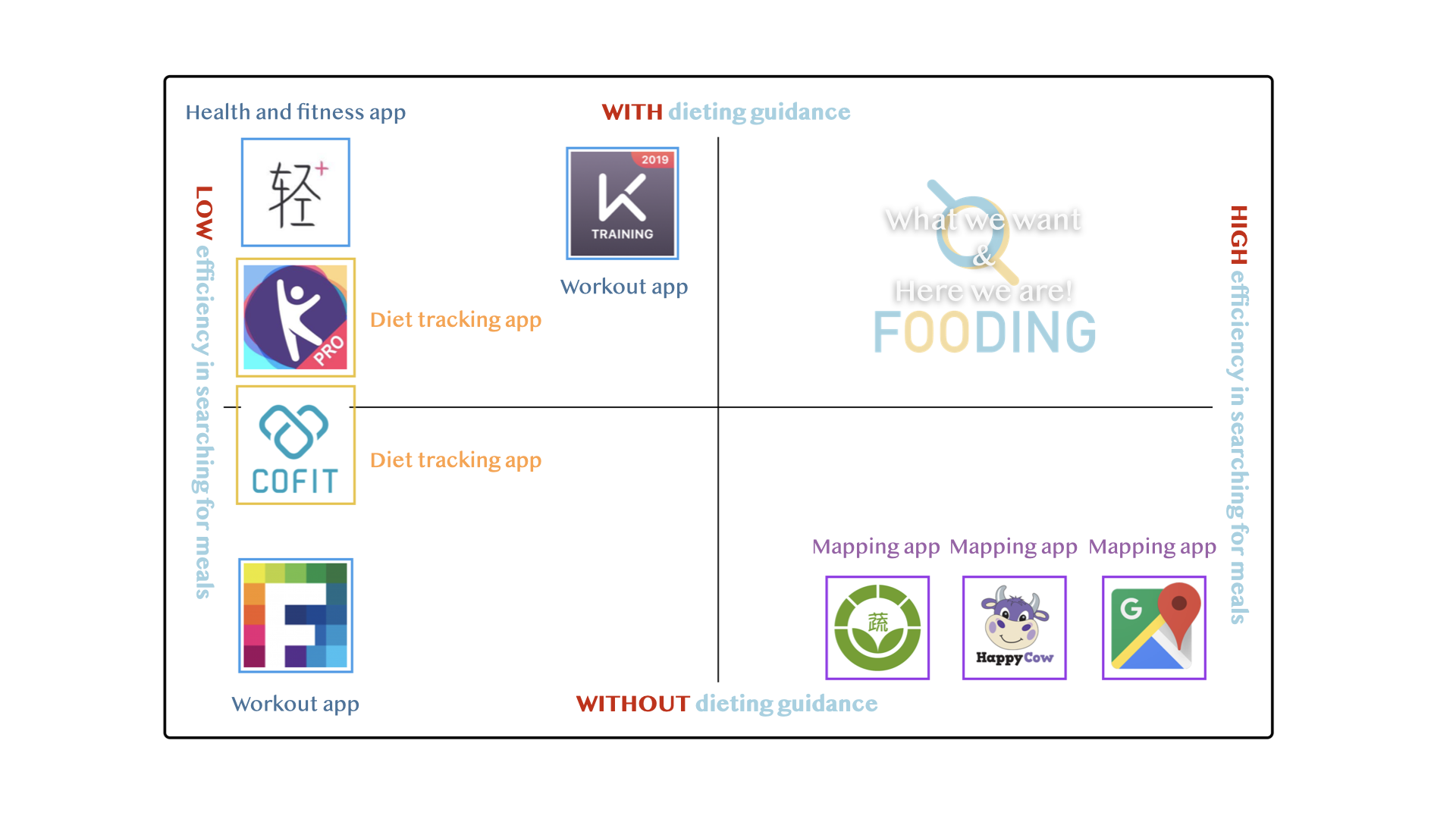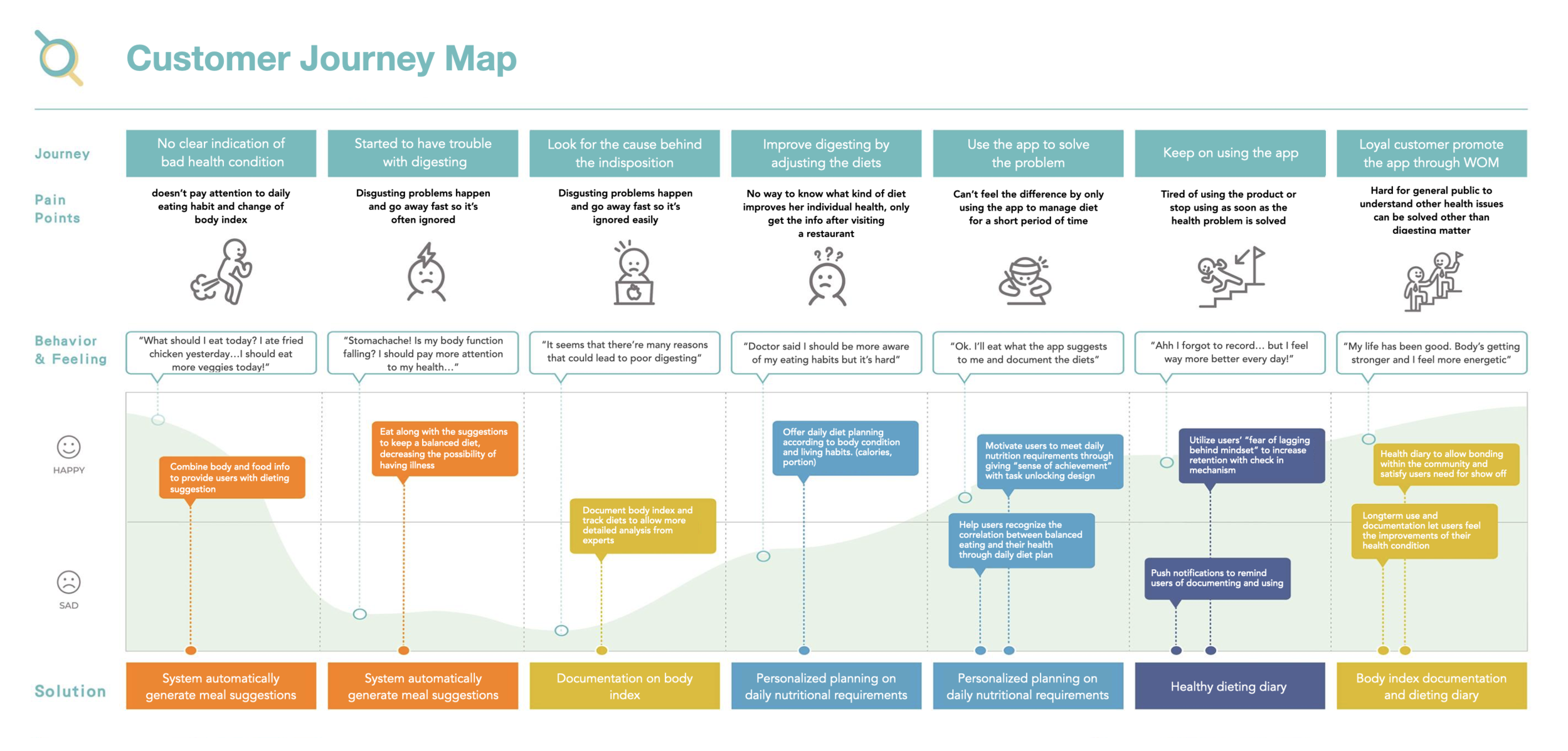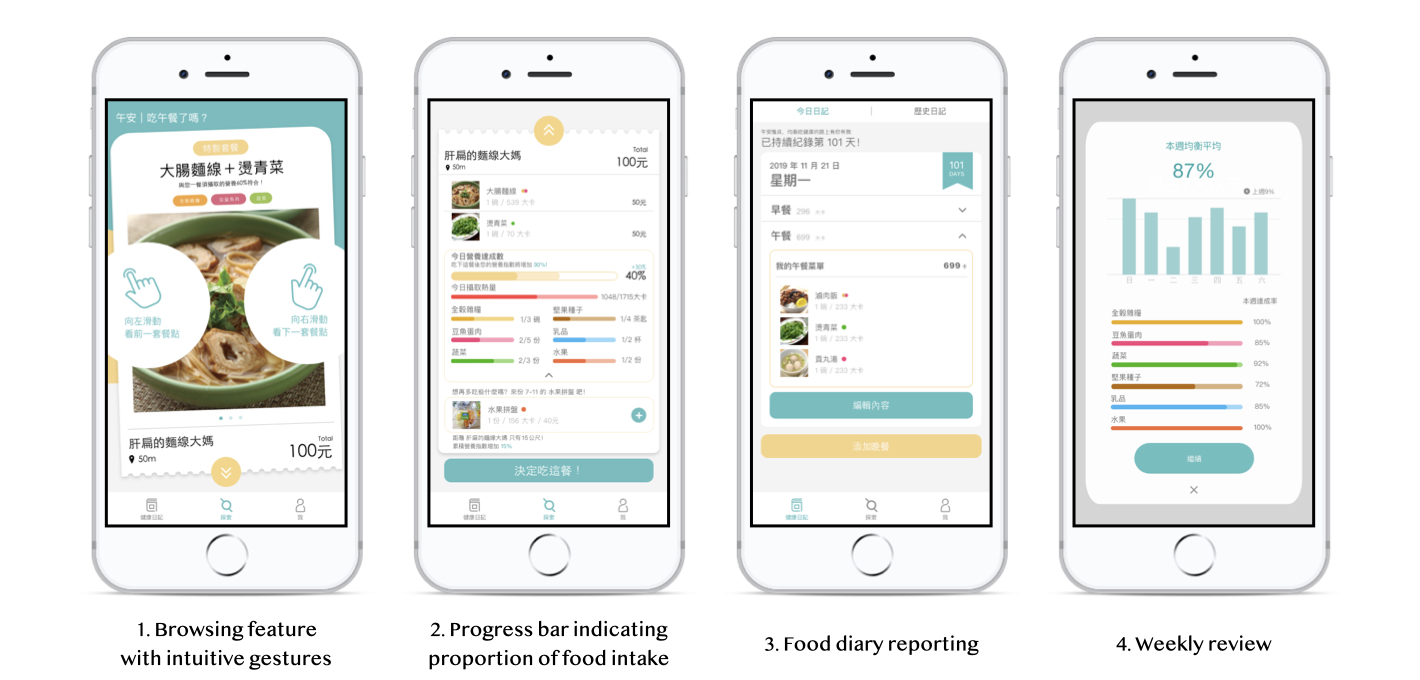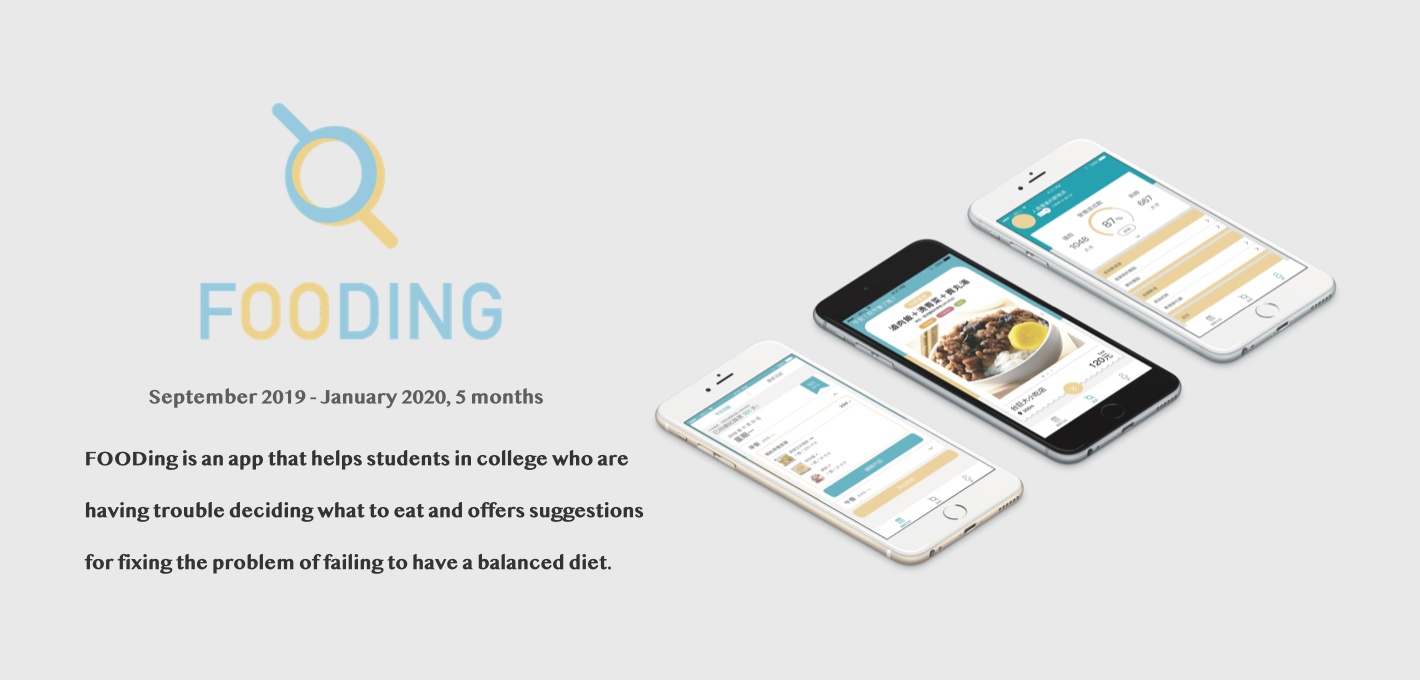Background
Healthy eating has become mainstream because most people are gradually raising their health awareness. However, lacking access to the information becomes a big issue for those who often dine out making it hard to maintain a balanced diet to stay healthy. Especially for college students who spend most of their time on campus.
Method
We adopted user interviews, survey validation, cognitive walkthrough, expert advisory, prototyping, wireframing, usability testing and created a high-fidelity prototype, and did an overall iteration..
Research
Research Highlights- Competitive Analysis
We did competitive analysis research on health-related products and looked into applications related to fitness, food suggestions, and diet management respectively. We put the efficiency of searching meals on the x-axis and whether there’s dieting guidance on the y-axis and created a four-quadrant diagram to validate market positioning. The four-quadrant diagram is as follows:

Then, we figured out there was an under-development region, in which user needs were not fulfilled and tried to work on the empty region and planned to provide an efficient meal exploring app with customized diet guidance.
Research Highlights- Customer Journey Map

Design
Design Highlights - Introduced Gamification to Our Design
We adopted Octalysis elaborated in Gamification Framework to our design. The theory states that different psychological needs of users can be satisfied through gamification design and mechanism. After being motivated by these different core drives, users will be more likely to take certain actions that the application expects them to.
Design Concepts
1. Adopt browsing feature with intuitive gestures
- Provide users with recommended surprising meals and apply intuitive gestures like dragging and tapping to let them have a sense of control over their choices.
2. Progress bar of suggested calorie and nutrient requirements intake
- Visualize the nutrition obtained and calories gained through interactive progress bars to indicate the diet completion rate of the day.
3. Support diary reporting and document tracking
- If users add the meal to the decision, the system will then send an alarm reminder to ensure the meal actually happens through a notification.
- If the meal was not decided in advance, users can still import the meals into the diary.
4. Provide visualized weekly review and dieting guidance
- Release a brief customized report on a weekly basis to help evaluate users’ performance with the assistance of progress bars.

Final Design
1. FOODing would guide users to fill out the information needed for calculating the calorie and nutrient requirements.
2. Users can select conditions for exploring healthy meals like distance, price, and preference; and balanced meal options from different restaurants will be provided accordingly.
3. After users decide on what to eat, the system would automatically send notifications to make sure if one actually has the meal and import nutrition data to the diary.
4. Finally, FOODing releases a report on a weekly basis to evaluate the effectiveness of their diet.
Evaluation
- Users mentioned the swiping for meals feature provides a great diversity of options and a smooth exploring experience.
- Users considered that both the daily report and documentation function could indeed assist them to report their day-to-day meals in a systematic approach.
- They hope to augment the restaurant database behind.
- Users mentioned it’s nice to have a weekly review at the end of each week and further pointed out seeing personal health index grow weekly brings a sense of achievement.
Future Work
We would like to introduce the function of AI identifying the meals. Through scanning or uploading photos added to the database, hoping that we can provide real-time recording of meals and more flexibility.
